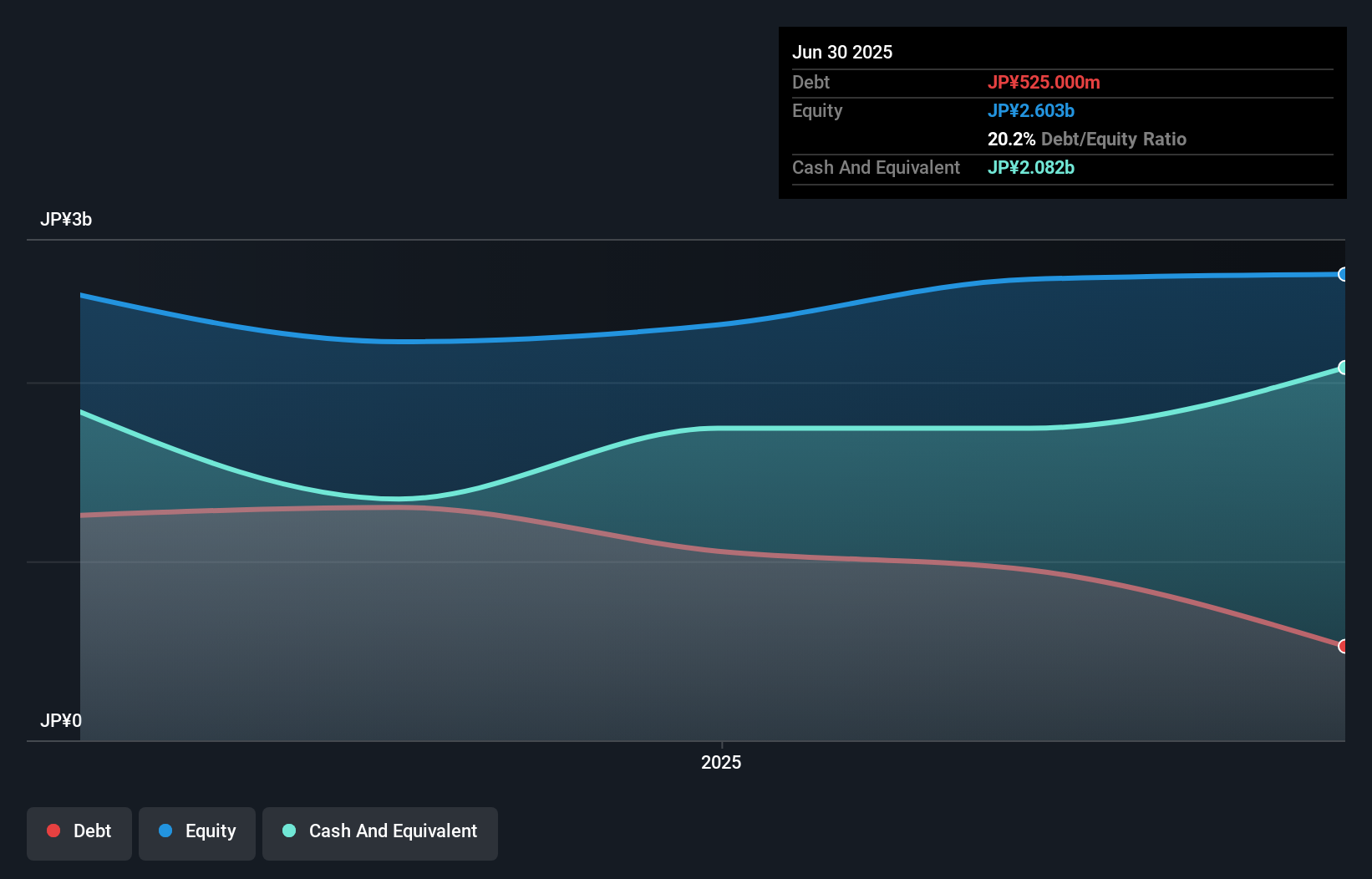Warren Buffett famously said, 'Volatility is far from synonymous with risk.' It's only natural to consider a company's balance sheet when you examine how risky it is, since debt is often involved when a business collapses. As with many other companies HPC SYSTEMS Inc. (TSE:6597) makes use of debt. But the real question is whether this debt is making the company risky.
When Is Debt Dangerous?
Debt is a tool to help businesses grow, but if a business is incapable of paying off its lenders, then it exists at their mercy. In the worst case scenario, a company can go bankrupt if it cannot pay its creditors. However, a more frequent (but still costly) occurrence is where a company must issue shares at bargain-basement prices, permanently diluting shareholders, just to shore up its balance sheet. Having said that, the most common situation is where a company manages its debt reasonably well - and to its own advantage. When we examine debt levels, we first consider both cash and debt levels, together.
What Is HPC SYSTEMS's Net Debt?
As you can see below, HPC SYSTEMS had JP¥525.0m of debt at June 2025, down from JP¥1.26b a year prior. But it also has JP¥2.08b in cash to offset that, meaning it has JP¥1.56b net cash.

A Look At HPC SYSTEMS' Liabilities
Zooming in on the latest balance sheet data, we can see that HPC SYSTEMS had liabilities of JP¥1.64b due within 12 months and liabilities of JP¥283.0m due beyond that. Offsetting these obligations, it had cash of JP¥2.08b as well as receivables valued at JP¥1.17b due within 12 months. So it actually has JP¥1.33b more liquid assets than total liabilities.
This surplus suggests that HPC SYSTEMS is using debt in a way that is appears to be both safe and conservative. Due to its strong net asset position, it is not likely to face issues with its lenders. Succinctly put, HPC SYSTEMS boasts net cash, so it's fair to say it does not have a heavy debt load!
View our latest analysis for HPC SYSTEMS
In addition to that, we're happy to report that HPC SYSTEMS has boosted its EBIT by 49%, thus reducing the spectre of future debt repayments. There's no doubt that we learn most about debt from the balance sheet. But it is future earnings, more than anything, that will determine HPC SYSTEMS's ability to maintain a healthy balance sheet going forward. So if you want to see what the professionals think, you might find this free report on analyst profit forecasts to be interesting.
Finally, a company can only pay off debt with cold hard cash, not accounting profits. While HPC SYSTEMS has net cash on its balance sheet, it's still worth taking a look at its ability to convert earnings before interest and tax (EBIT) to free cash flow, to help us understand how quickly it is building (or eroding) that cash balance. Happily for any shareholders, HPC SYSTEMS actually produced more free cash flow than EBIT over the last two years. That sort of strong cash conversion gets us as excited as the crowd when the beat drops at a Daft Punk concert.
Summing Up
While we empathize with investors who find debt concerning, you should keep in mind that HPC SYSTEMS has net cash of JP¥1.56b, as well as more liquid assets than liabilities. And it impressed us with free cash flow of JP¥1.3b, being 502% of its EBIT. The bottom line is that we do not find HPC SYSTEMS's debt levels at all concerning. When analysing debt levels, the balance sheet is the obvious place to start. However, not all investment risk resides within the balance sheet - far from it. These risks can be hard to spot. Every company has them, and we've spotted 3 warning signs for HPC SYSTEMS you should know about.
If, after all that, you're more interested in a fast growing company with a rock-solid balance sheet, then check out our list of net cash growth stocks without delay.
Valuation is complex, but we're here to simplify it.
Discover if HPC SYSTEMS might be undervalued or overvalued with our detailed analysis, featuring fair value estimates, potential risks, dividends, insider trades, and its financial condition.
Access Free AnalysisHave feedback on this article? Concerned about the content? Get in touch with us directly. Alternatively, email editorial-team (at) simplywallst.com.
This article by Simply Wall St is general in nature. We provide commentary based on historical data and analyst forecasts only using an unbiased methodology and our articles are not intended to be financial advice. It does not constitute a recommendation to buy or sell any stock, and does not take account of your objectives, or your financial situation. We aim to bring you long-term focused analysis driven by fundamental data. Note that our analysis may not factor in the latest price-sensitive company announcements or qualitative material. Simply Wall St has no position in any stocks mentioned.
About TSE:6597
HPC SYSTEMS
Develops, manufactures, and sells high-performance and embedded computers in Japan.
Excellent balance sheet with moderate growth potential.
Market Insights
Community Narratives



